
Old-time music is a genre of North American folk music. It developed along with various North American folk dances, such as square dancing, contra dance, clogging, and buck dancing. It is played on acoustic instruments, generally centering on a combination of fiddle and plucked string instruments, most often the banjo, guitar, and mandolin. Together, they form an ensemble called the string band, which along with the simple banjo-fiddle duet have historically been the most common configurations to play old-time music. The genre is considered a precursor to modern country music.

Bascom Lamar Lunsford was a folklorist, performer of traditional Appalachian music, and lawyer from western North Carolina. He was often known by the nickname "Minstrel of the Appalachians."

Po' Girl is a Canadian music group whose style derives from folk, country and jazz. The band evolved from a series of jam sessions, in 2000, between Trish Klein of The Be Good Tanyas and Allison Russell, then of Fear of Drinking. The two met up again in 2003 and named themselves Po' Girl. Klein said at the time that the new group offered her the opportunity to write and perform her own songs. Po' Girl recorded their last album in 2010, but the members' musical careers have continued to develop, either as soloists or in other bands. Once based in Vancouver, Po' Girl is now back in the Eastern cities of Toronto and Montreal. The current band lineup is Allison Russell (singer/multi-instrumentalist), Awna Teixeira (singer/multi-instrumentalist), Benny Sidelinger (multi-instrumentalist) and Mikey "Lightning" August.
Smithsonian Folkways is the nonprofit record label of the Smithsonian Institution. It is a part of the Smithsonian's Smithsonian Center for Folklife and Cultural Heritage, located at Capital Gallery in downtown Washington, D.C. The label was founded in 1987 after the family of Moses Asch, founder of Folkways Records, donated the entire Folkways Records label to the Smithsonian. The donation was made on the condition that the Institution continue Asch's policy that each of the more than 2,000 albums of Folkways Records remain in print forever, regardless of sales. Since then, the label has expanded on Asch's vision of documenting the sounds of the world, adding six other record labels to the collection, as well as releasing over 300 new recordings. Some well-known artists have contributed to the Smithsonian Folkways collection, including Pete Seeger, Ella Jenkins, Woody Guthrie, and Lead Belly. Famous songs include "This Land Is Your Land", "Goodnight, Irene", and "Midnight Special". Due to the unique nature of its recordings, which include an extensive collection of traditional American music, children's music, and international music, Smithsonian Folkways has become an important collection to the musical community, especially to ethnomusicologists, who utilize the recordings of "people's music" from all over the world.

The Carolina Chocolate Drops were an old-time string band from Durham, North Carolina. Their 2010 album, Genuine Negro Jig, won the Grammy Award for Best Traditional Folk Album at the 53rd Annual Grammy Awards, and was number 9 in fRoots magazine's top 10 albums of 2010.
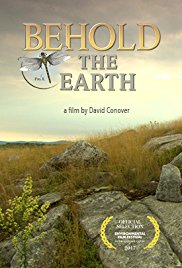
Behold the Earth is a feature-length musical documentary film that inquires into America's estrangement from nature, built out of conversations with leading biologists and evangelical Christians, and directed by David Conover. The film made its debut at the 2017 DC Environmental Film Festival.

Allison Russell is a Canadian singer-songwriter, musician and activist.

Genuine Negro Jig is the third studio album of the Carolina Chocolate Drops, an African-American string band. Its label debut was released on February 16, 2010, while its vinyl version, which included the album on 140-gram vinyl and CD, was released on July 13. This is the first album the band has recorded for Nonesuch Records. It was highly successful, reaching the top ten on the Billboard Folk chart and the top of the Bluegrass chart. It was also the last CCD recording to include collaborator and Sankofa Strings co-founder, Sule Greg Wilson.

Leaving Eden is the fourth studio album by the Carolina Chocolate Drops.
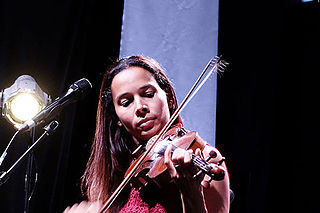
Rhiannon Giddens is an American musician known for her eclectic folk music. She is a founding member of the country, blues, and old-time music band the Carolina Chocolate Drops, where she was the lead singer, fiddle player, and banjo player.

Leyla Sarah McCalla is an American classical and folk musician. She was a cellist with the Grammy Award–winning string band Carolina Chocolate Drops, but left to focus on her solo career.

Tomorrow Is My Turn is the first studio album by Rhiannon Giddens. Nonesuch Records released the album on February 10, 2015. She worked with T Bone Burnett in the production of this album. The album was nominated for Best Folk Album at the 58th Annual Grammy Awards. The title song is Nina Simone's English version of Charles Aznavour's 1962 hit "L'Amour, c'est comme un jour".
Dirk Powell is an American fiddler, banjo player, and singer. Powell was born in Oberlin, Ohio into a family with deep Kentucky roots. He has lived in Louisiana since 1992. He is considered one of the world's leading experts on traditional Appalachian fiddle and banjo styles. Powell is also a recording engineer and producer, with his own studio, the Cypress House, in Breaux Bridge, near Lafayette, Louisiana. The studio is in a converted 1850s Louisiana Creole home on Bayou Teche and focuses on vintage gear and audio..

Freedom Highway is the second solo studio album of Folk/Americana musician and Carolina Chocolate Drops front woman Rhiannon Giddens. It was released via Nonesuch Records on February 24, 2017. Freedom Highway was nominated for Album of the Year at the 2017 Americana Music Honors & Awards. The title track "Freedom Highway" is a 1965 civil rights protest song written by Roebuck Staples and title track of The Staple Singers' album of the same name.
Birds of Chicago is an Americana/folk band founded in March 2012 in Chicago, Illinois, United States. The band is led by husband and wife, JT Nero and Allison Russell. Russell is formerly of the Canadian roots act Po' Girl. The duo-fronted band refers to their music as "secular gospel".
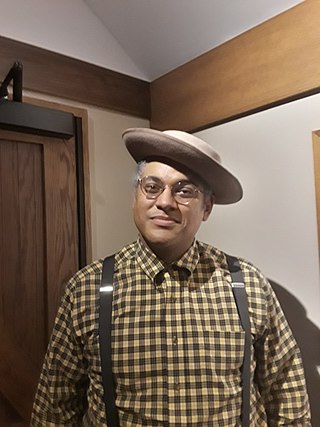
Dominique Flemons is an American old-time music, Piedmont blues, and neotraditional country multi-instrumentalist, singer, and songwriter. He is a proficient player of the banjo, fife, guitar, harmonica, percussion, quills, and rhythm bones. He is known as "The American Songster" as his repertoire of music spans nearly a century of American folklore, ballads, and tunes. He has performed with Mike Seeger, Joe Thompson, Martin Simpson, Boo Hanks, Taj Mahal, Old Crow Medicine Show, Guy Davis, and The Reverend Peyton's Big Damn Band.
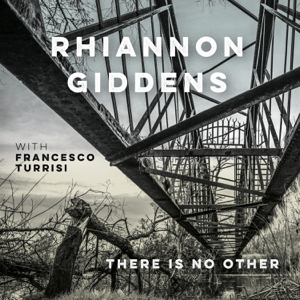
There Is No Other is a collaborative studio album by American singer-songwriter and Carolina Chocolate Drops vocalist Rhiannon Giddens, and Italian jazz musician Francesco Turrisi. The album was produced by Joe Henry and was released on May 3, 2019 by Nonesuch Records.

Amythyst Kiah is an American singer-songwriter. Kiah is a native of Chattanooga, Tennessee and currently lives in Johnson City. She plays guitar and banjo.
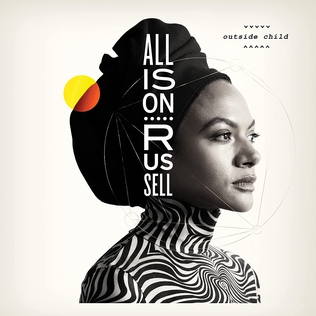
Outside Child is the debut album by Canadian singer-songwriter, poet, activist and multi-instrumentalist Allison Russell. Produced by Dan Knobler and released by Fantasy Records on May 21, 2021, it is Russell's first release as a solo artist following two decades of performing and releasing music as a member of the groups Po' Girl, Birds of Chicago and Our Native Daughters. Lyrically, the album details Russell's experiences with the abuse she endured as a child at the hands of her stepfather, with The New York Times describing it as “a harrowing story of survivor's joy” and Russell herself stating that “the record itself isn't really about abuse. It's about the journey out of that, and breaking those cycles. It is about resilience, survival, transcendence, the redemptive power of art, community, connection, and chosen family”.
Atis Indepandan is a New York–based music group that plays in a traditional Haitian troubadour style with influences from contemporary American folk music and Brazilian tropicália. They released two albums of Haitian protest songs: Haiti: Ki Sa Pou-N Fe? What is to Be Done? in 1975 and Haiti: Canti Di Lotta E Di Ribellione / Songs Of Struggle And Rebellion in 1976, during the repressive reign of Jean-Claude Duvalier. Their lyrics bear a strong socialist message, becoming a landmark in Haitian revolutionary music and reference during the struggle against the Duvalier dictatorship.
















